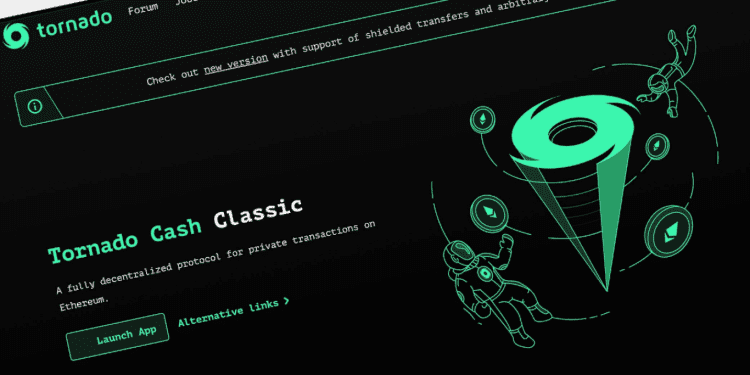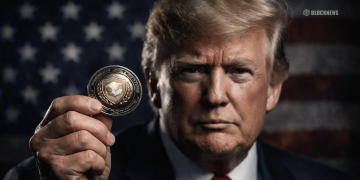- Coinbase supports a legal challenge aimed at reversing the U.S. government’s sanctions on crypto mixer platform Tornado Cash.
- Plaintiffs contend that OFAC’s sanctions do not apply to open-source software like Tornado Cash and that its smart contracts should not be considered property under the IEEPA.
- The legal battle highlights the ongoing debate over cryptocurrency regulations and the privacy rights of U.S. citizens.
In a new development in the fight for online privacy rights and cryptocurrency regulation, Coinbase, a leading cryptocurrency exchange, is supporting a legal challenge aimed at reversing the U.S. government’s sanctions on Tornado Cash, a crypto mixer platform. The United States Treasury Department imposed the sanctions in August 2022, accusing Tornado Cash of being involved in money laundering schemes.
The platform allows users to anonymize their cryptocurrency transactions, making it more difficult for third parties to trace the transactions back to their sources.
On April 5, six individuals, with the backing of Coinbase, filed a motion for a partial summary judgment in a Texas District Court. The plaintiffs, Joseph Van Loon, Tyler Almeida, Alexander Fisher, Preston Van Loon, Kevin Vitale, and Nate Welch, request that the U.S. Office of Foreign Asset Control (OFAC) address the first two counts of their original complaint filed in September 2022.
Plaintiffs Argue for Privacy Rights and Against Overreach
The plaintiffs argue that OFAC has exceeded its statutory powers under the International Emergency Economic Powers Act (IEEPA) and violated the free speech clause of the U.S. Constitution’s First Amendment. Their first claim states that OFAC breached a section of the IEEPA that allows the Treasury to take action against property tied to a foreign country or foreign national. The plaintiffs assert that this provision, which enables property-related actions against a foreign “national” or “person,” does not apply to open-source software like Tornado Cash.
To strengthen their argument, they maintain that the smart contracts that power Tornado Cash should not be considered property under the IEEPA, as they cannot be owned. According to the filing,
“An immutable smart contract is incapable of being owned; it is not property, and the Department lacks authority under IEEPA and the North Korea Act to prohibit transactions with those smart contracts.”
The second claim states that OFAC’s ban on the open-source code imposes a risk on free speech laws. While the plaintiffs acknowledge OFAC’s authority to take action against “crypto thieves” such as North Korea’s Lazarus Group, they argue that a “total prohibition is grossly disproportionate,” as money laundering accounted for only 0.05% of crypto transactions in 2021.
“To ban all uses of Tornado Cash is akin to banning the printing press because a minuscule percentage of users might publish instructions on how to build a nuclear weapon,” they added.
The Broader Implications of the Tornado Cash Legal Battle
This legal battle highlights the ongoing debate over cryptocurrency regulations and the privacy rights of U.S. citizens. Coinbase CEO, Paul Grewal, confirmed in a tweet that the company is backing the legal challenge to the US-imposed sanctions on Tornado Cash, emphasizing that the Constitution and the country’s laws recognize the importance of privacy.
While the outcome of this legal challenge remains uncertain, it will undoubtedly significantly impact the future of cryptocurrency regulation and privacy rights in the United States. As the crypto industry continues to grow, regulators and the crypto community must strike a balance between protecting user privacy and ensuring the responsible use of the technology.
In the meantime, Tornado Cash founder, Alexey Pertsev, faces legal troubles in the Netherlands, where he has been held since August 12 on a series of money laundering charges. The outcome of the legal battle in the U.S. may have far-reaching consequences for Pertsev and the future of Tornado Cash.














